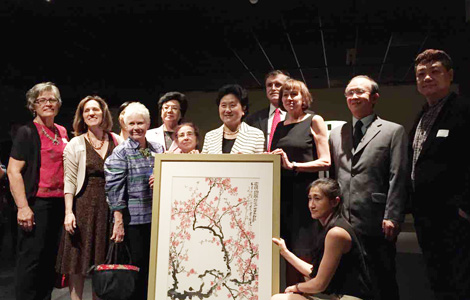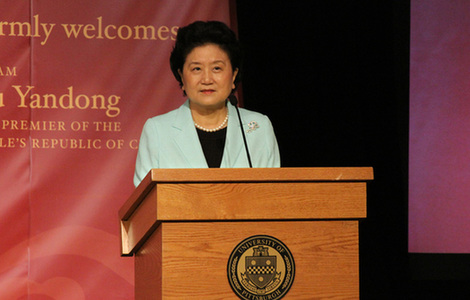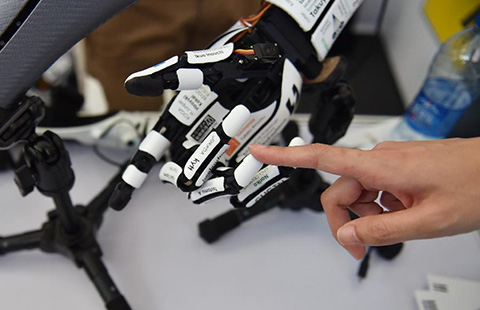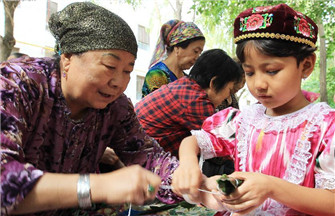Learning the real lessons of life
Updated: 2015-06-22 10:18
By Li Yang(China Daily)
|
||||||||
I still remember the first illustrated book that my mother read to me when I was just three years old. It was The Wonderful Adventure of Nils, a masterpiece from Selma Lagerlof, the first woman writer from Sweden who won the Nobel Prize for Literature.
What still remains deeply etched in my memory are the vivid illustrations that captured the animal world in its entirety for a three-year old. On most occasions, I felt that was the protagonist Nils in the story and that it was me who was on the back of a goose. Those feelings of nostalgia linger in my mind even today.
Although my mother, a reserved woman but a keen reader, had not told me what to learn from the story, I often learnt the lessons myself. Some of these like "to not look down upon and bully the animals" and several other things that most humans habitually think as inferior are often things endowed with great mystery and still remain fresh in my memory. There were some valuable lessons that I learnt like: "How happiness is all about helping others" and "That by helping others, one would get help when he or she needs it".
Later on I read other children's illustration books like Treasure Island by the Scottish author Robert Louis Stevenson, Robinson Crusoe by Daniel Defoe, and Black Beauty by Anna Sewell, the Hans Christian Andersen's Fairy Tales, as well as some ancient Chinese classic novels.
I cannot remember how many times I fell asleep while imagining myself as Robinson Crusoe on the lonely island. Crusoe's fearless fight against difficulties motivated me to overcome the real difficulties arising from the hand-to-mouth frugal life in a planned economy in my hometown of Jinan, Shandong province.
Times have changed and I am a proud parent. Though my son is just nine months old, I take care to keep him away from computers and smartphones, as I know how easily he can get addicted. Since digital gadgets are often controlled by touch, it does little to stimulate the children's thirst for knowledge and imagination about the unknown world.
On the other hand, children can "live" in the illustration books and become an owner of themselves. But they are always an outsider in the cyberspace and a slave of the digital gadget, once they are addicted to the illusion created by information technology.
From a real perspective, illustration books can tighten the emotional bonds between parents and children as it is a combined effort. When the adults read to them, the children look at the pictures. But the cyberspace outlets only keep the family members apart.

 Liu visits Houston Museum of Natural Science
Liu visits Houston Museum of Natural Science
 Liu meets Tsinghua Youth team in Houston
Liu meets Tsinghua Youth team in Houston
 Liu visits CI in Pittsburgh
Liu visits CI in Pittsburgh
 Shenzhen Maker Week kicks off
Shenzhen Maker Week kicks off
 Chinese wrap up Zongzi to mark upcoming Dragon Boat Festival
Chinese wrap up Zongzi to mark upcoming Dragon Boat Festival
 A Chinese Garden in a Sister City
A Chinese Garden in a Sister City
 Across America over the week (June 12-18)
Across America over the week (June 12-18)
 Liu meets Intel CEO
Liu meets Intel CEO
Most Viewed
Editor's Picks

|

|

|

|

|

|
Today's Top News
Liu plays basketball diplomacy
Wang Yang hails S&ED
Tsinghua students flying high
Chinese Premier emboldens state firms' int'l industrial cooperation
CI in Pittsburgh welcomes
vice-premier
Sichuan and Pittsburgh unveil
new school
Russia, China do not form blocs against anyone: Putin
More than 'greet'
and 'meet'
US Weekly

|

|






